"I Still Love You" is a song by the Bee Gees primarily written by Barry, Robin & Maurice Gibb. It was released as a double A side of "Living Eyes" and on the album Living Eyes. Produced by the Gibb brothers with Albhy Galuten and Karl Richardson.

Now Voyager is the debut solo studio album by British singer-songwriter Barry Gibb, the member of the Bee Gees. It was released on 17 September 1984 by Polydor Records in the UK and MCA Records in the US. Now Voyager was recorded sometime around the year at Criteria Studios in Miami, Florida, and Ocean Way Recording in Hollywood, California, and was produced by Gibb and Karl Richardson. It contains his biggest solo hits, "Shine, Shine" and "Fine Line". The album also included the Olivia Newton-John duet "Face to Face", which was released as a promo single. Gibb co-produced the album with Karl Richardson, who had been working with the Bee Gees since 1975. The front cover photograph was taken by Alex Henderson at Victoria Baths, Manchester.

Spirits Having Flown is the fifteenth album by the Bee Gees, released in 1979 by RSO Records. It was the group's first album after their collaboration on the Saturday Night Fever soundtrack. The album's first three tracks were released as singles and all reached No. 1 in the US, giving the Bee Gees an unbroken run of six US chart-toppers in a one-year period and equaling a feat shared by Bing Crosby, Elvis Presley, and The Beatles. It was the first Bee Gees album to make the UK top 40 in ten years, as well as being their first and only UK No. 1 album. Spirits Having Flown also topped the charts in Australia, Canada, Germany, New Zealand, Sweden and the US. The album has sold more than 20 million copies worldwide.

"Love You Inside Out" is a 1979 hit single by the Bee Gees from their album, Spirits Having Flown. It was their last chart-topping single on the Billboard Hot 100, interrupting Donna Summer's "Hot Stuff", becoming the third single from the album to do so. In the UK, the single peaked at No. 13 for two weeks. It was the ninth and final number-one hit for the Bee Gees in the US, and the twelfth and final number-one hit in Canada as well. The trio would not return to the top 10 for ten years, with the song, "One".
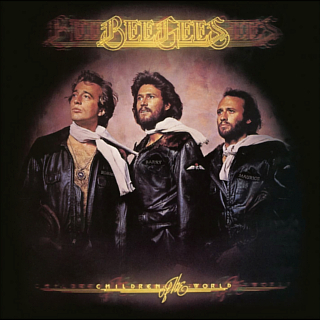
Children of the World is the fourteenth studio album by the Bee Gees, released in 1976 by RSO Records. The first single, "You Should Be Dancing", went to No. 1 in the US and Canada, and was a top ten hit in numerous other territories. The album was re-issued on CD by Reprise Records and Rhino Records in 2006. This was the first record featuring the Gibb-Galuten-Richardson production team which would have many successful collaborations in the following years.
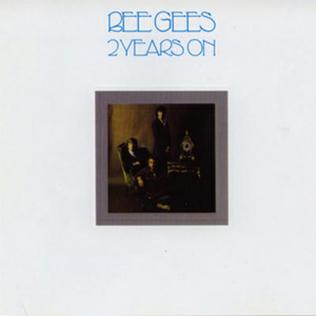
2 Years On is the eighth studio album by the Bee Gees, which reached No. 32 on the US charts. Released in 1970, the album saw the return of Robin Gibb to the group after an earlier disagreement and subsequent split following Odessa. 2 Years On was the first album with drummer Geoff Bridgford, who remained a full-time member of the group until 1972 although he was not pictured on the sleeve. The best-known track is "Lonely Days". Released as the first single by the reunited brothers, it charted high in the US, but peaked at No. 33 in the United Kingdom.

Living Eyes is the sixteenth studio album by the Bee Gees, released in 1981. It was the band's final album on RSO Records, which would be absorbed into Polydor and subsequently discontinued. The album showcased a soft rock sound that contrasted with their disco and R&B material of the mid-to-late 1970s; having become a prominent target of the popular backlash against disco, the Bee Gees were pressured to publicly disassociate from the genre.

"Heartbreaker" is a song performed by American singer Dionne Warwick. It was written by Barry, Robin and Maurice Gibb of the Bee Gees for her 1982 studio album of the same name, while production was helmed by Barry Gibb, Albhy Galuten and Karl Richardson under their production moniker Gibb-Galuten-Richardson. Barry Gibb's backing vocal is heard on the chorus.

Eaten Alive is the sixteenth studio album by American R&B singer Diana Ross, released on September 24, 1985, by RCA Records in the United States, with EMI Records distributing elsewhere. It was Ross' fifth of six albums released by the label during the decade. Primarily written and produced by Barry Gibb of the Bee Gees, with co-writing from his brothers Andy, Maurice, and Robin, the album also includes a contribution from Ross' friend Michael Jackson who co-wrote and performed on the title track.
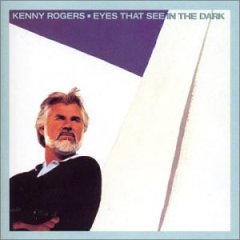
Eyes That See in the Dark is the fifteenth studio album by American country singer Kenny Rogers, released by RCA Nashville in August 1983.

"I Just Want to Be Your Everything" is a song recorded by Andy Gibb, initially released in April 1977 as the first single from his debut album Flowing Rivers. It reached number 1 on the Billboard Hot 100 for three weeks, starting on the week ending 30 July 1977, and again for the week ending 17 September 1977. It was Gibb's first single released in the United Kingdom and United States. His previous single, "Words and Music" was only released in Australia. It is ranked number 26 on Billboard's 55th anniversary All Time Top 100.

After Dark is the third and final studio album by English singer-songwriter Andy Gibb. It features his last US Top 10 single "Desire", "I Can't Help It" and two Bee Gees numbers "Rest Your Love on Me" and "Warm Ride".

"Guilty" is a vocal duet between Barbra Streisand and Barry Gibb. The song was written by all three Bee Gees: Barry, Robin & Maurice Gibb. Released as a single from Streisand's 1980 album of the same name. "Guilty" peaked at No. 3 on the US Billboard Hot 100 chart and No. 5 on the adult contemporary chart. In the UK, the song reached No. 34 on the UK Singles Chart. The single was certified gold by the RIAA. In addition, "Guilty" won a Grammy Award in the category Best Pop Vocal Performance, Duo or Group. The song also appeared on the 2001 Bee Gees compilation, Their Greatest Hits: The Record.
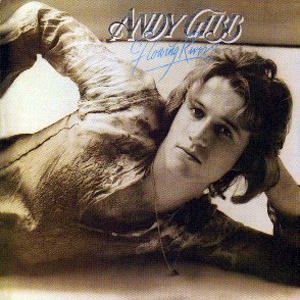
Flowing Rivers is the debut studio album by English singer-songwriter Andy Gibb. The album was produced by Albhy Galuten and Karl Richardson, with Barry Gibb on two tracks. It was released in September 1977 on RSO. Flowing Rivers was re-released by Polydor Records in 1998 in CD version.

"Buried Treasure" is a song written by Barry, Robin & Maurice Gibb, and recorded by American country music artist Kenny Rogers. It was released as the B-side of "This Woman" in January 1984 as the third single from the album Eyes That See in the Dark. The song reached number 3 on the Billboard Hot Country Singles & Tracks chart and number 2 on the Canadian RPM Country Tracks chart.

"(Our Love) Don't Throw It All Away" is a song penned by Barry Gibb and Blue Weaver and recorded by the Bee Gees in 1977 on the Saturday Night Fever sessions but was not released until Bee Gees Greatest (1979). A different version was released in September 1978 as the third single by Andy Gibb from his second studio album Shadow Dancing.
"This Woman" is a song written by Barry Gibb and Albhy Galuten and was performed by American country recording artist Kenny Rogers. It reached No. 2 in the US Adult Contemporary Chart and No. 23 in the US Pop Chart. It was published by Gibb Brothers Music and Unichappell Music.
"Paradise" is a pop ballad recorded by the Bee Gees included on the 1981 album Living Eyes. It was later released as a single in Netherlands and Japan with "Nothing Could Be Good" as the B-side. It was included on the 1983 greatest hits album Gold & Diamonds.
"You and I" is a song written by Barry, Robin and Maurice Gibb and was recorded and performed by Kenny Rogers from his 1983 album Eyes That See in the Dark. Despite not being released as a single, it has been played on the radio, becoming one of Rogers' most popular songs. Barry Gibb sings background vocals on the intro, chorus, interlude. The performer of the song sometimes credited to 'Kenny Rogers and the Bee Gees' because Barry used his falsetto.
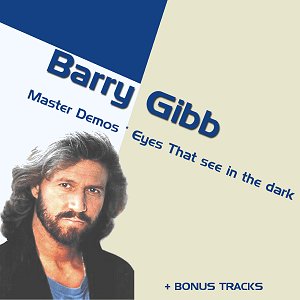
The Eyes That See in the Dark Demos is a demo version of the album by Barry Gibb. Originally circulating on tape among collectors and later also on CD the album saw a legitimate and wide release on iTunes in October 2006. Maurice Gibb contributed bass, guitar and synthesizer and Robin Gibb contributed background vocals on some songs in this demo album.
















